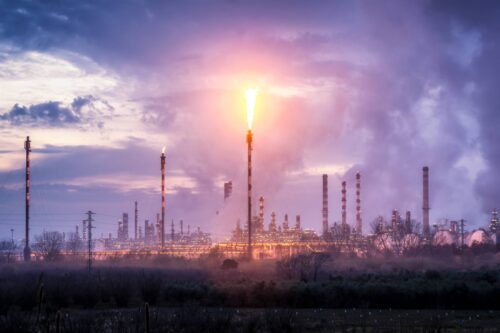
Report | 2022
Oil Refining Emissions Cut Points
Downstream Decarbonization in the Decisive Decade
If society collectively turned off the tap for gasoline and diesel today, the oil industry would continue to play a role in producing petrochemicals ranging from the fiberglass resins used in wind turbine blades to the plastic components of solar panels.
Taking immediate action to cut emissions from oil refineries and petrochemical plants holds the potential for major climate wins in this decisive decade, with a 1 percent reduction equivalent to taking three million gasoline-powered cars off the road. This report outlines the full value chain approach required to decarbonize an industry operationally responsible for 3 gigatons of greenhouse gas emissions in 2019 alone.
Report recommendations integrate three major categories for decarbonizing oil refining and petrochemical feedstock manufacturing in line with the emissions reductions required to avoid the worst consequences of climate change:
- Diminishing conventional fuel demand, such as by vehicle electrification, as a means of scaling back refining capacity and emissions.
- Employing bio-based feedstocks for producing biofuels such as renewable diesel and sustainable aviation fuel while cutting refineries’ operational emissions with evolving technologies like clean hydrogen.
- Positioning assets toward a circular carbon economy approach that considers refining within broader priorities of reducing, reusing, recycling, and removing carbon across economic sectors.